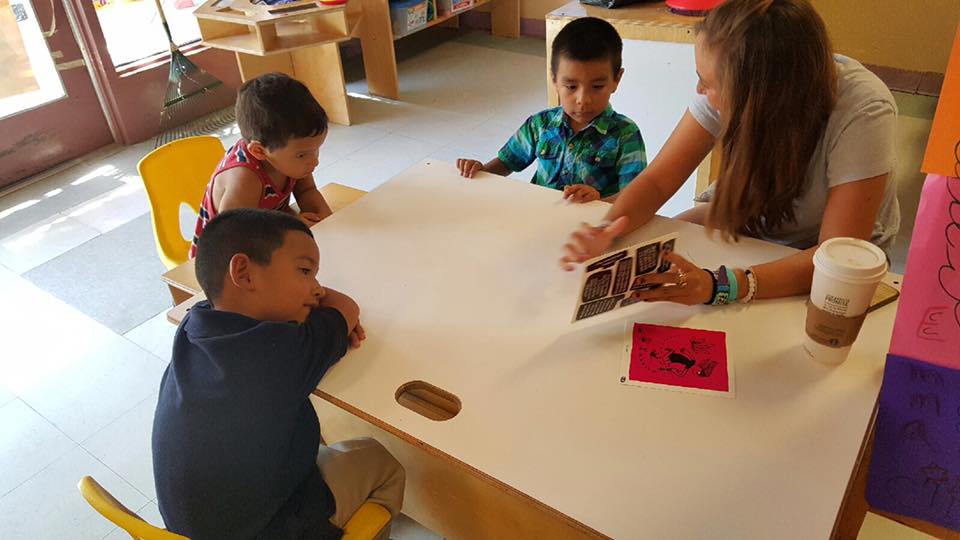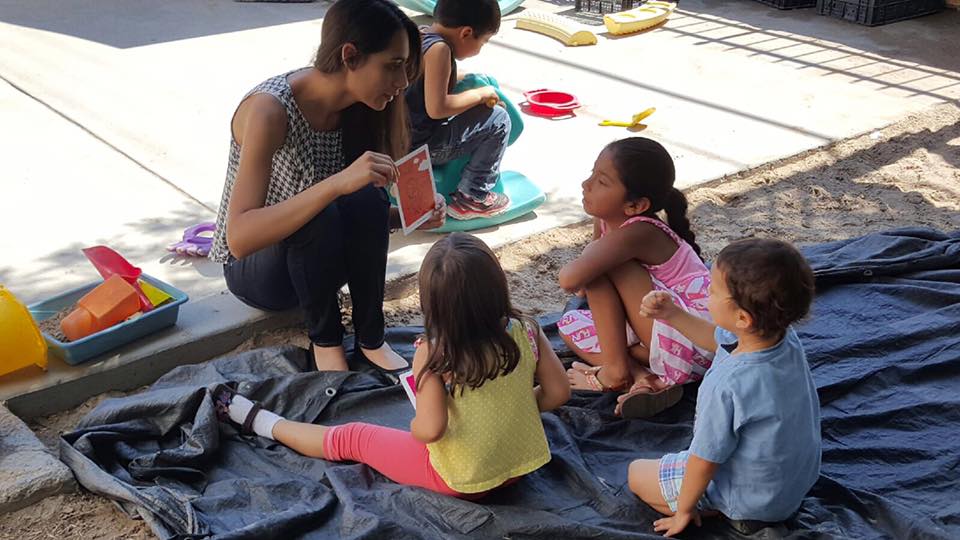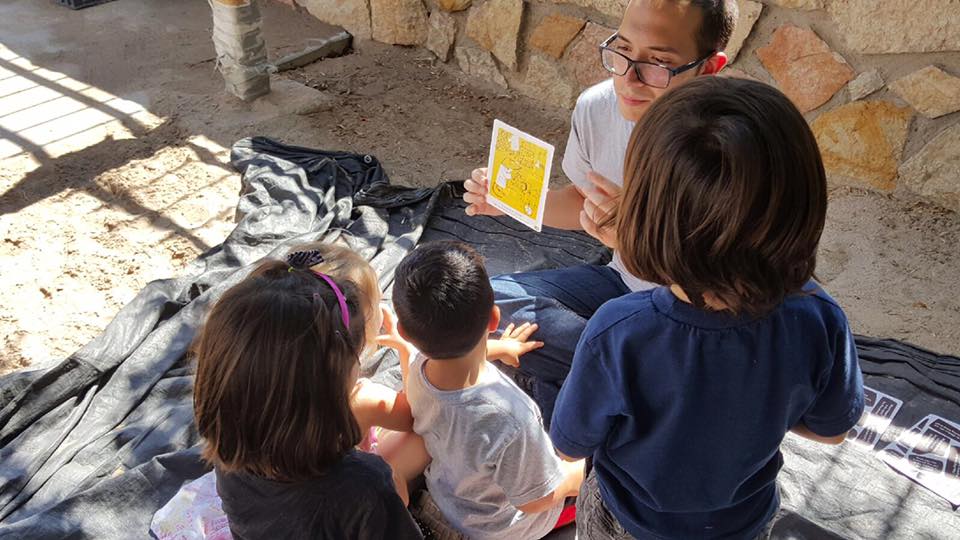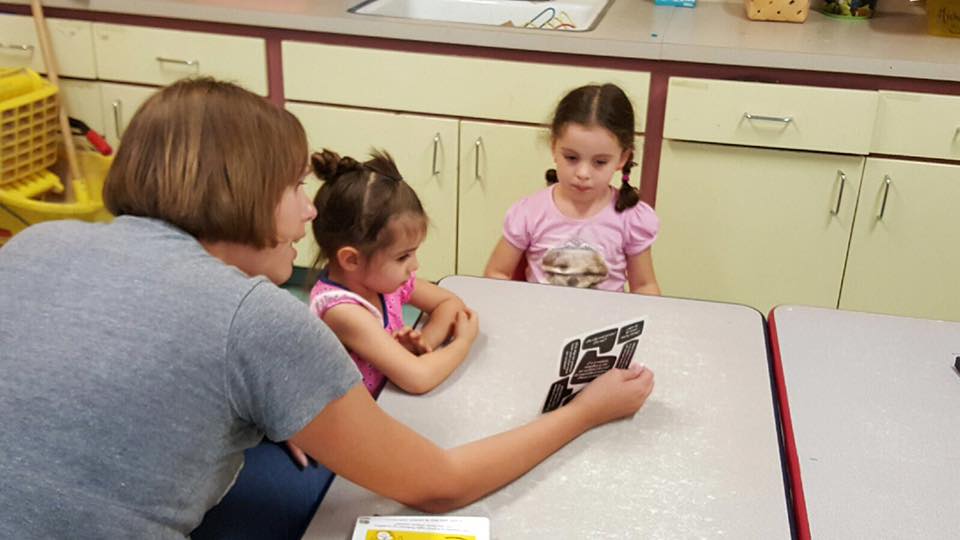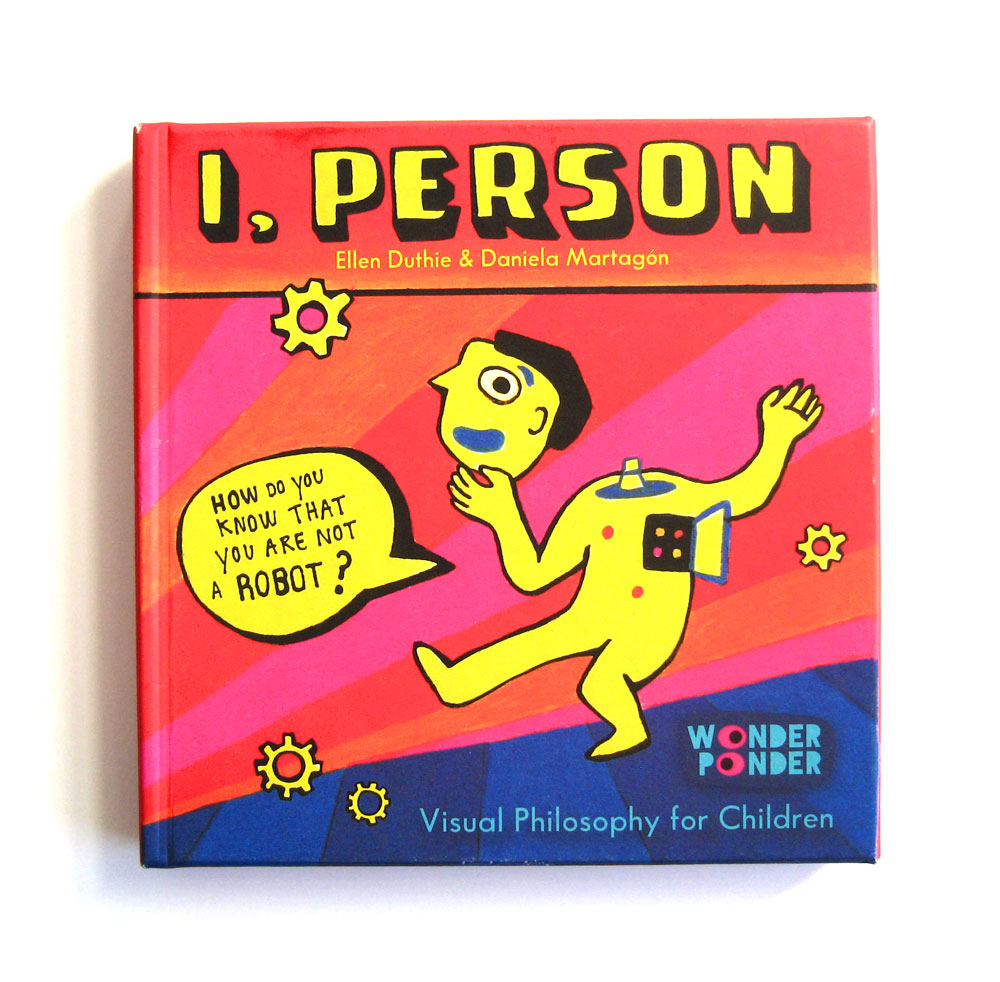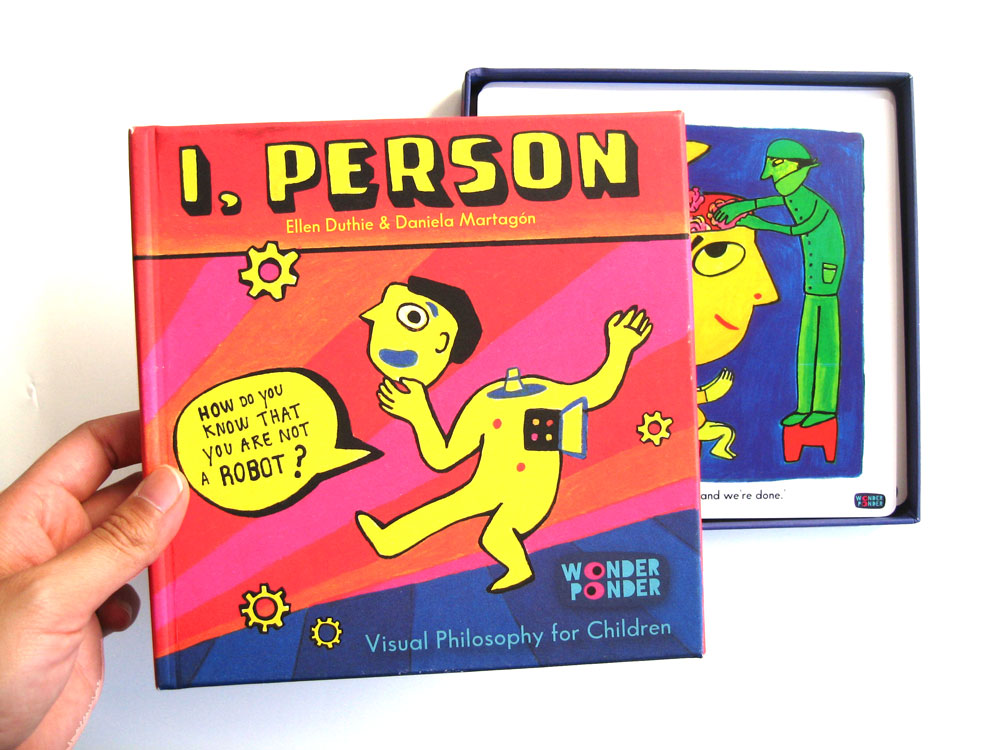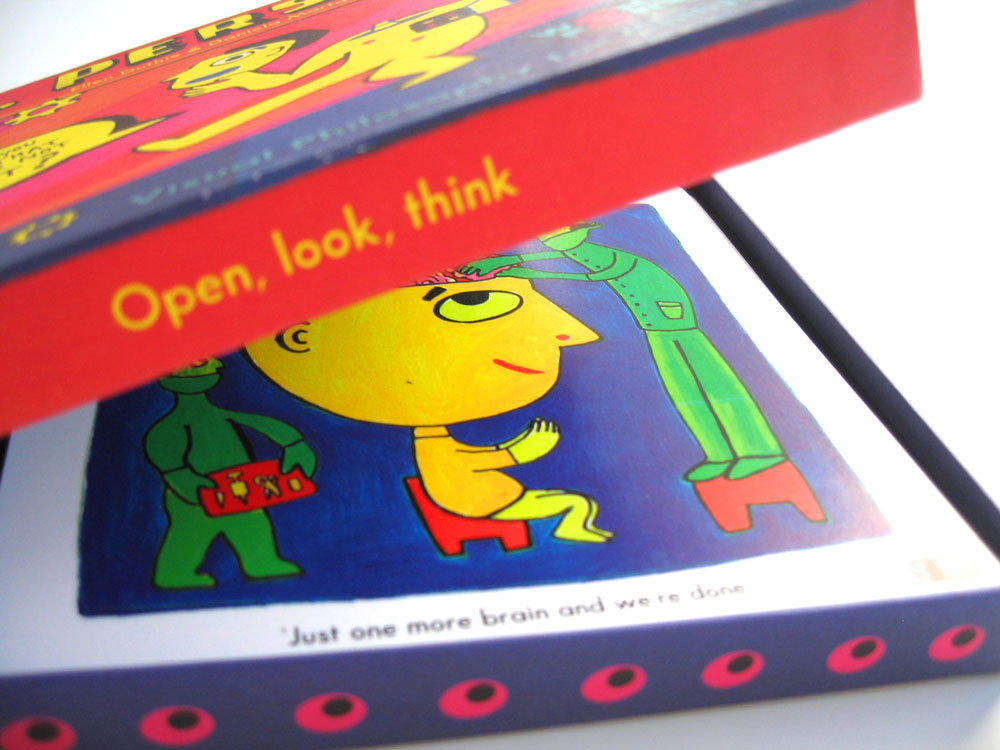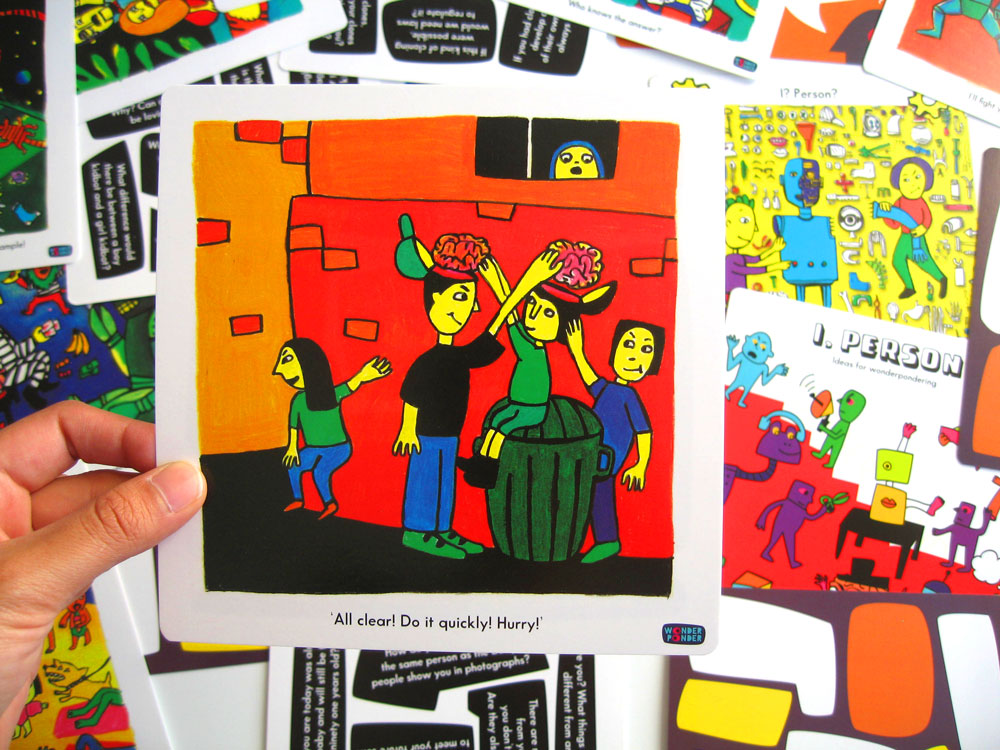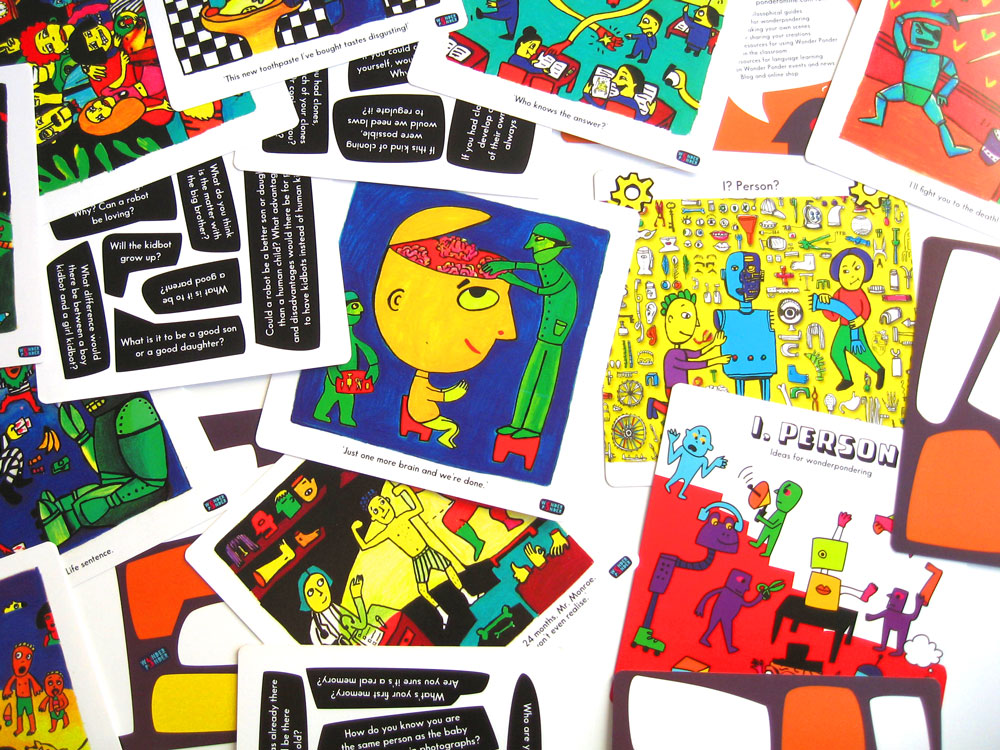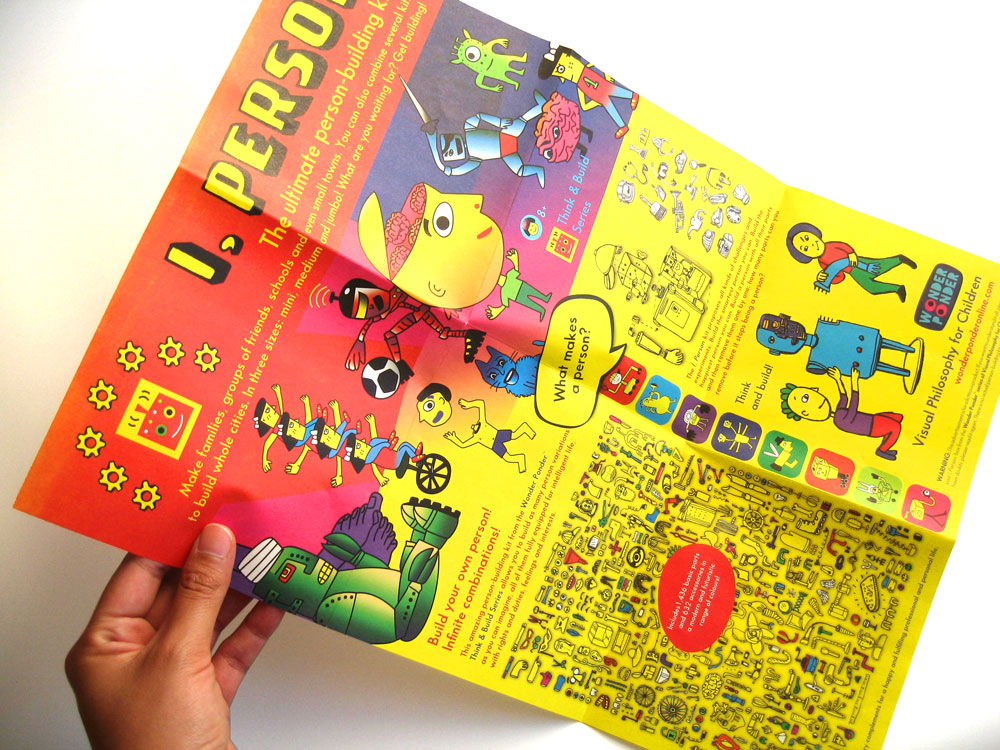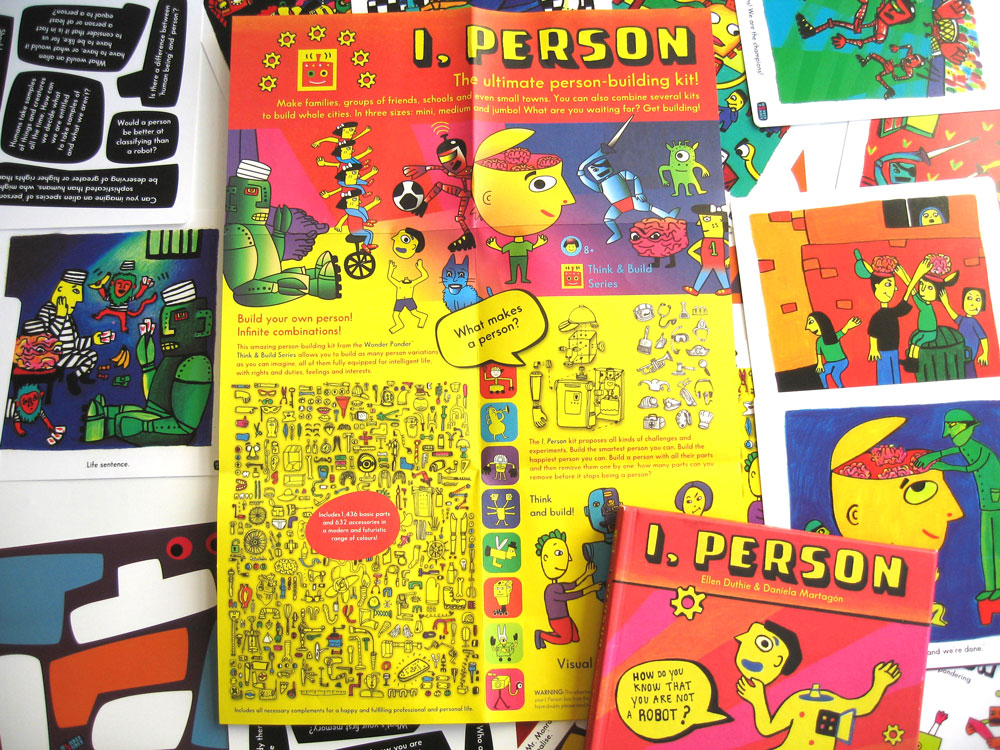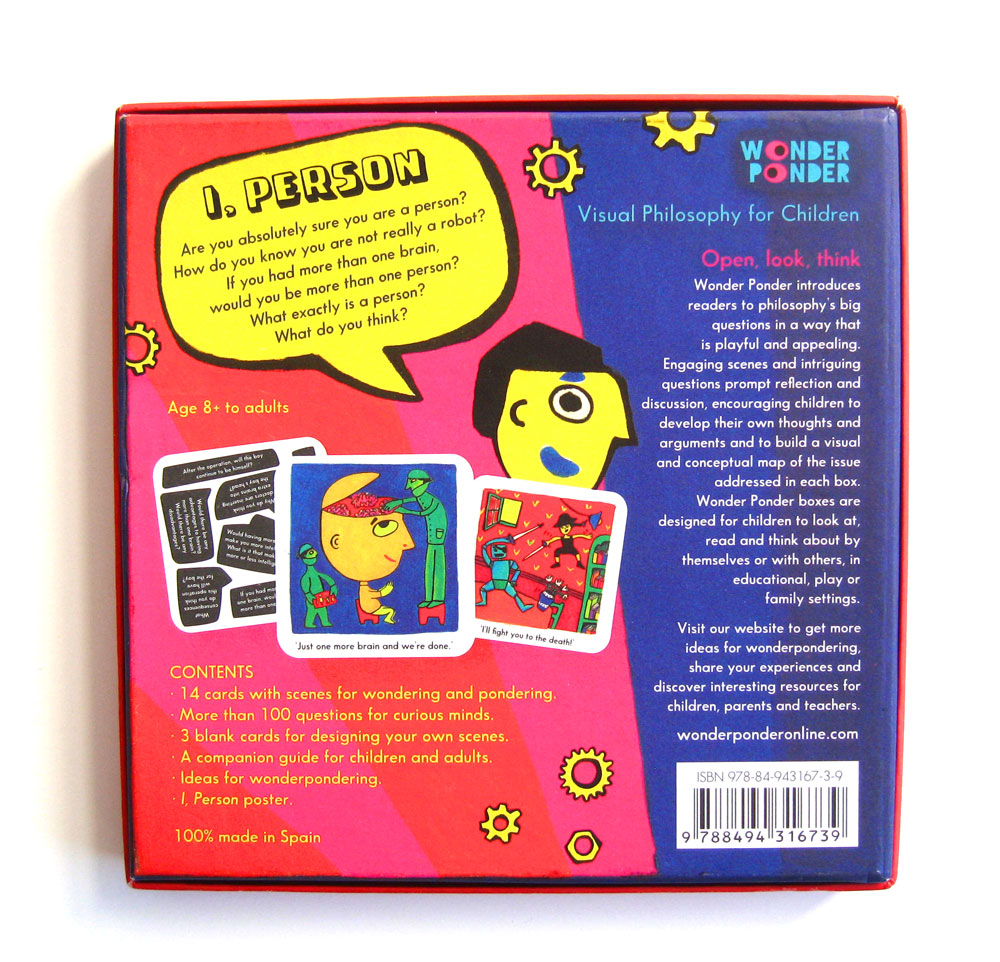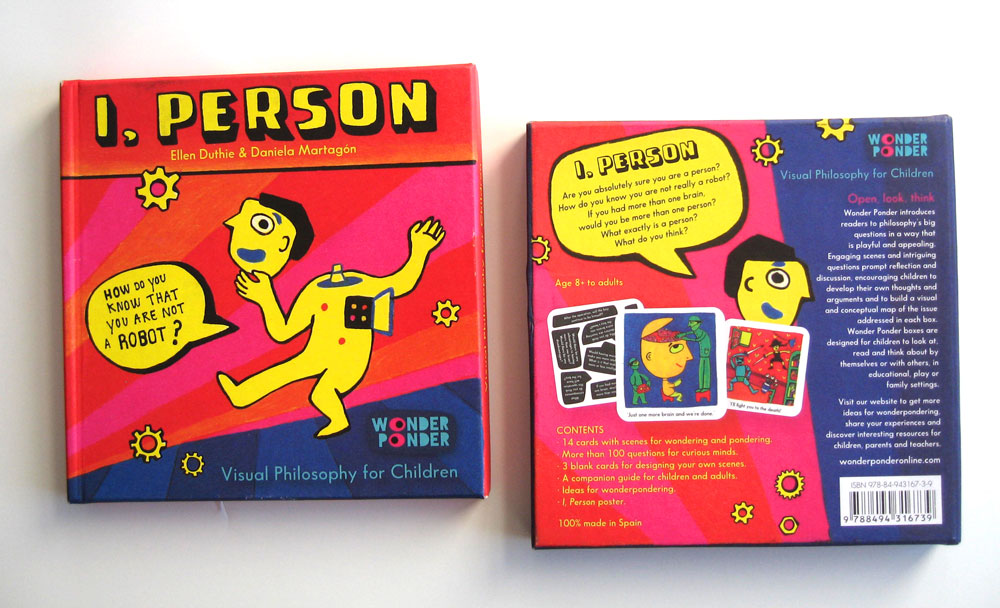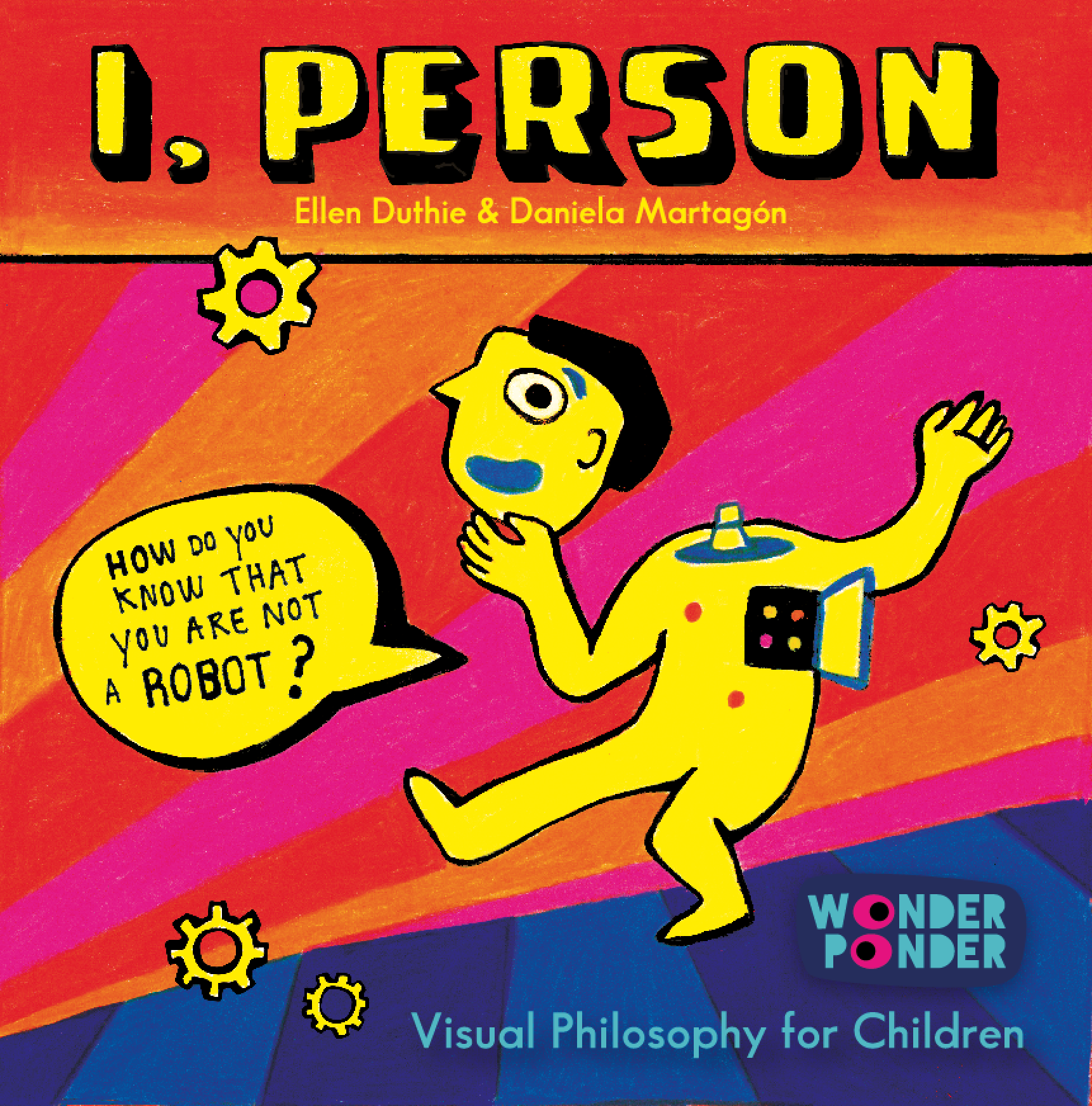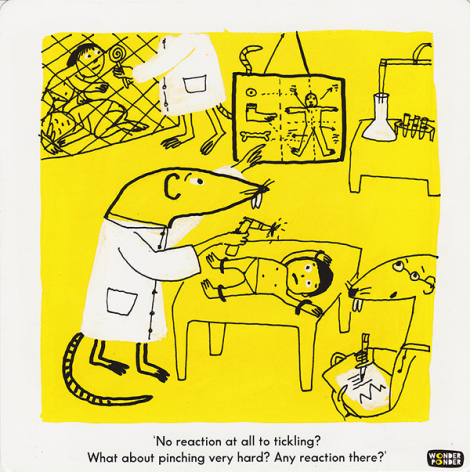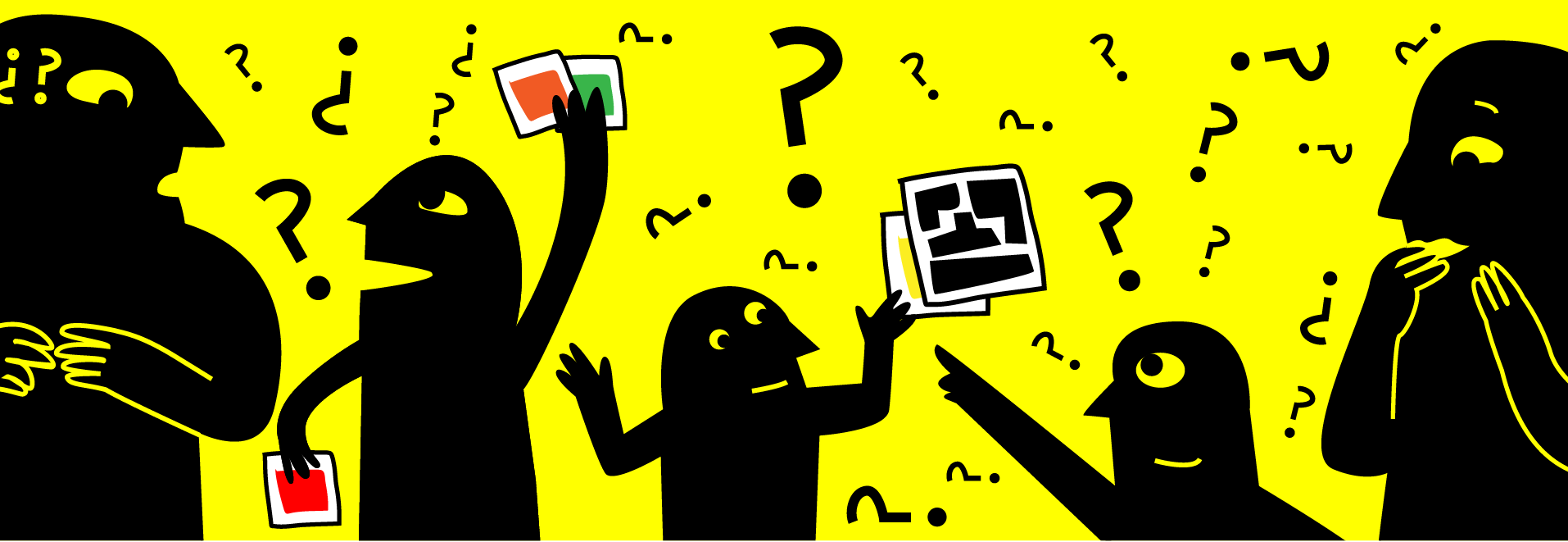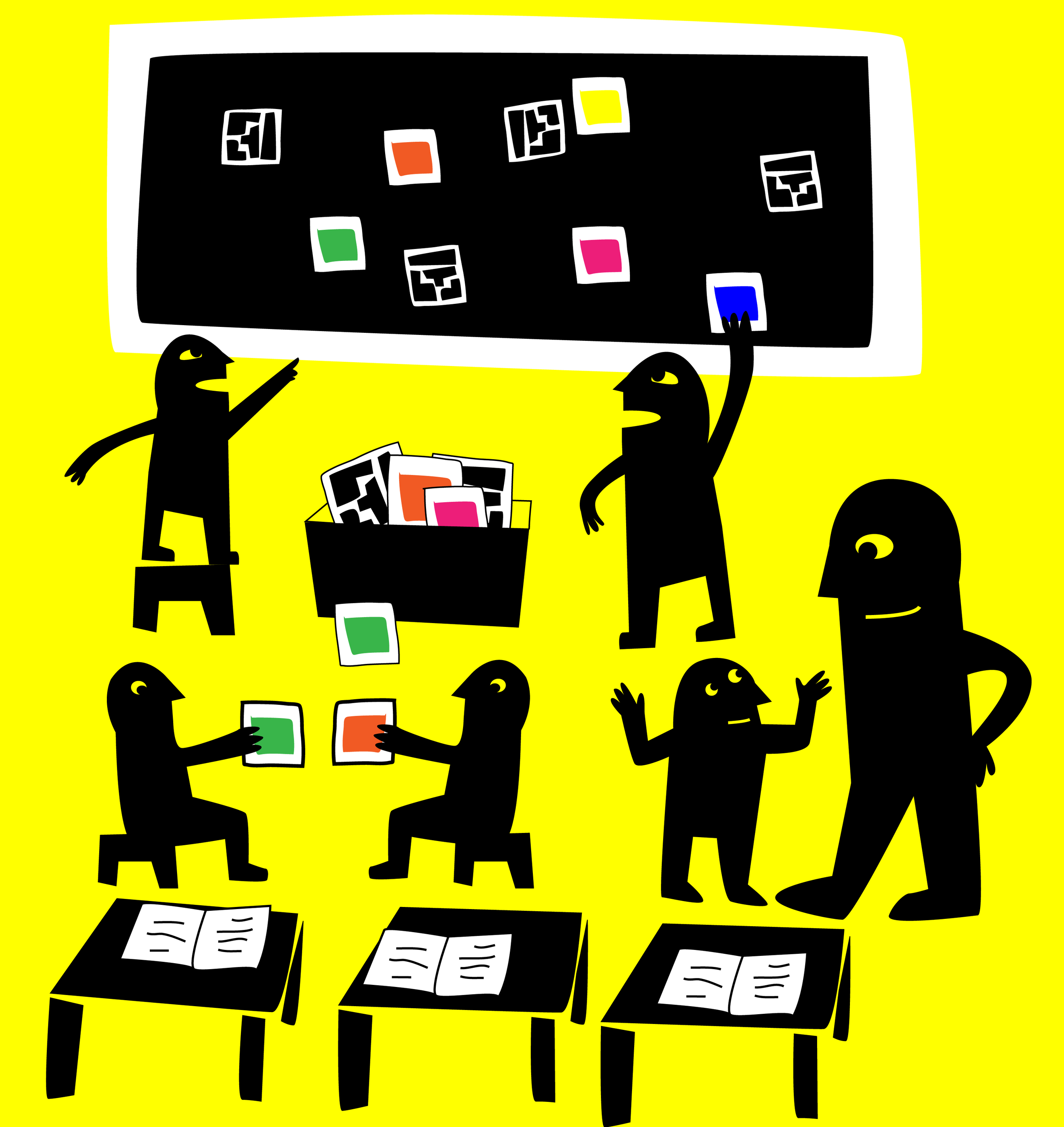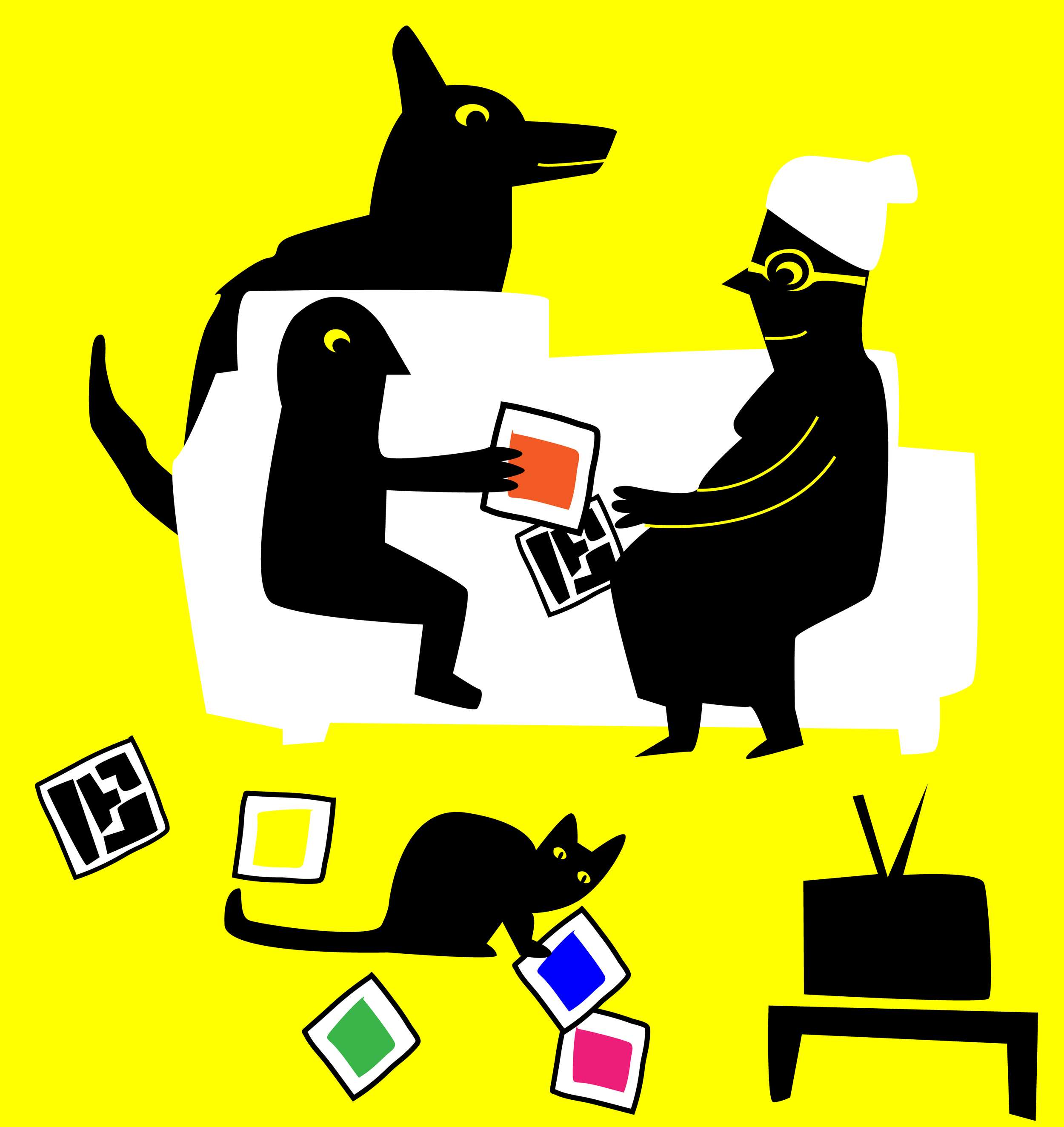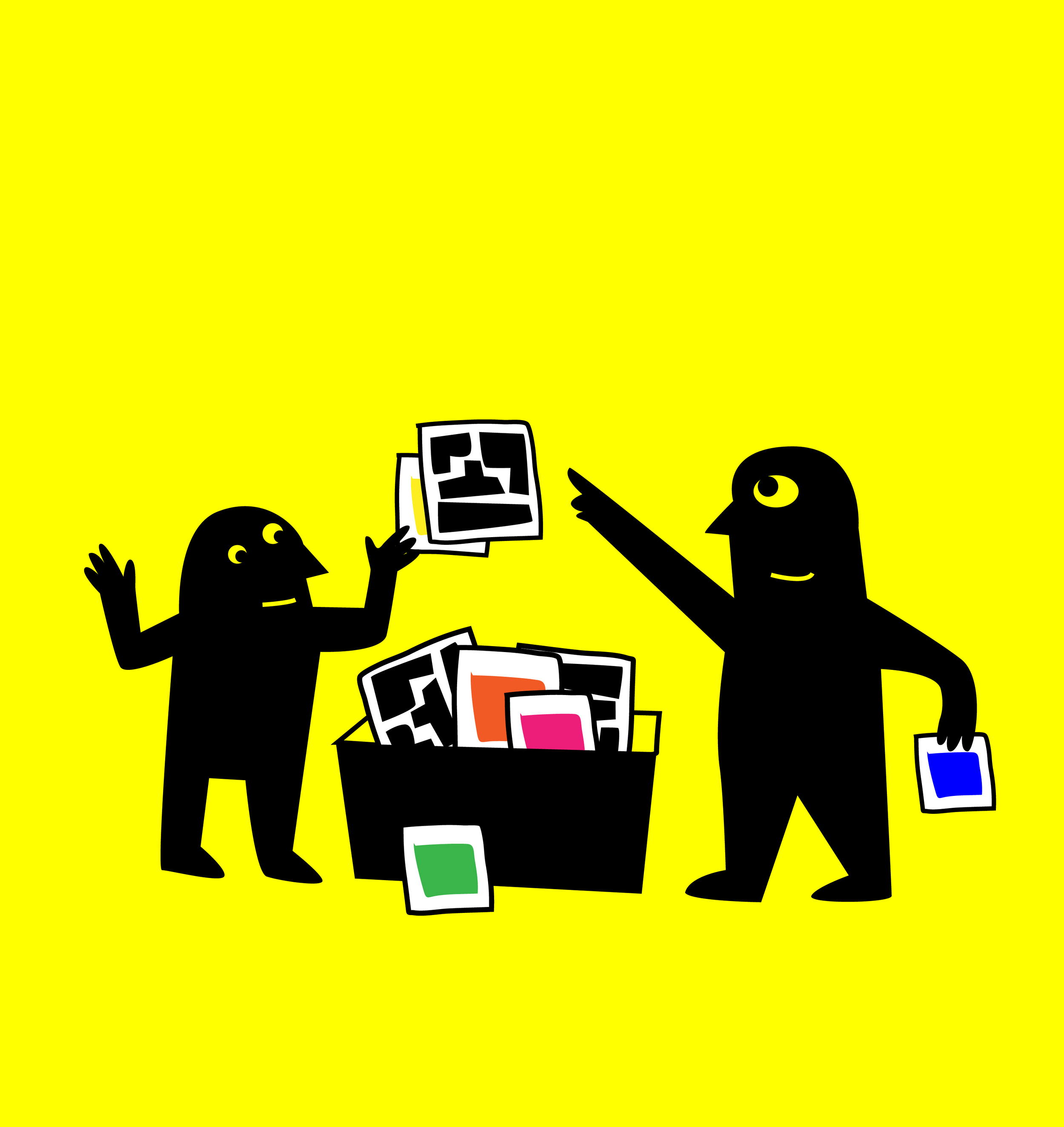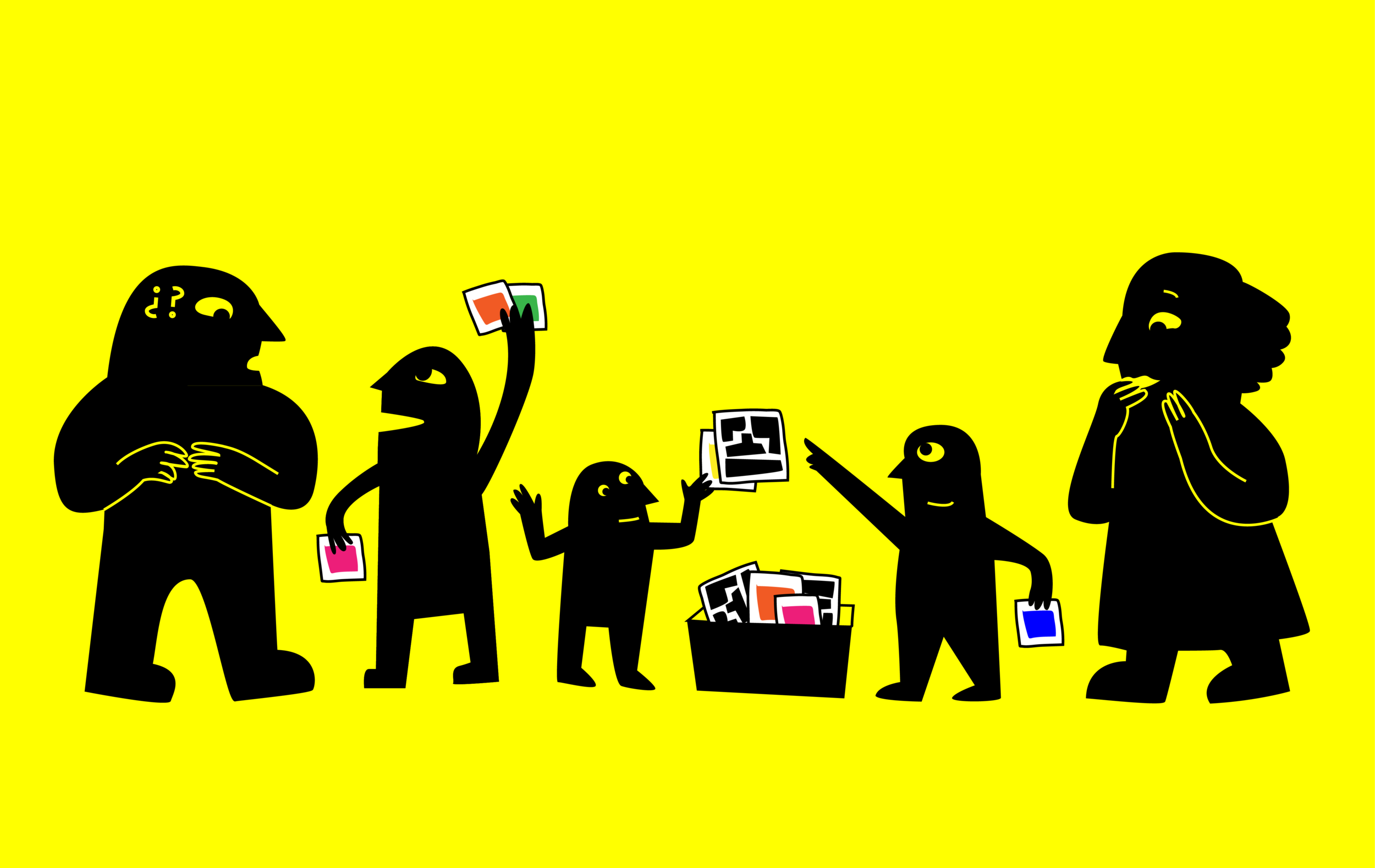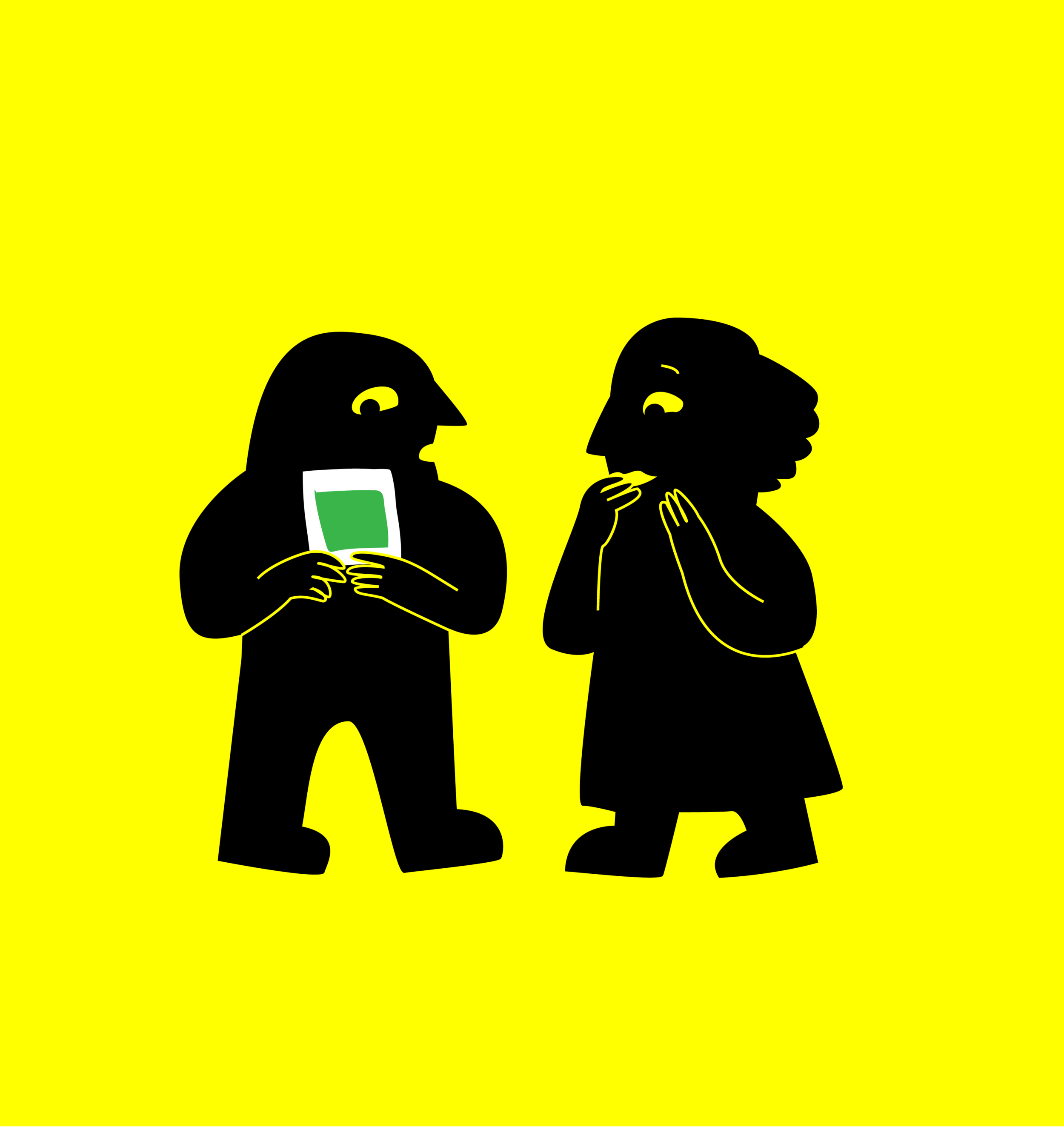"Its authors", says Sánchez-Manjavacas, "have created a new level of philosophical and creative interaction with young chldren."
He calls it "the great revelation of 2014" and assures that it "revolutionises the Philosophy for Children scene including something that is often overlooked: learning to read images".
"This product brings innovation of the kind that ensures that Philosophy for Children doesn’t lie in the slumber of the same didactic methodologies".
Transaltion of full review follows:
Review of Cruelty Bites HASER. Revista Internacional de Filosofía Aplicada
DUTHIE, ELLEN and MARTAGÓN, DANIELA, Cruelty Bites, Traje de lobo S.L., Madrid, 2014. 42 pages.
By Jorge Sánchez-Manjavacas Mellado
It is quite common today to come across places where Philosophy for Children activities are organised. Sites such as libraries, bookshops, schools, collective and artistic venues where Philosophy, of an educational and playful sort, has acquired increasing importance and where there is increasing concern regarding the creation of future societies with critical skills, collaboration skills and where dialogue prevails over violence. Perhaps Matthew Lipman would think his methodological proposal of the late 70s bore little resemblance to some of what is happening today, or perhaps this would have been a reason for joy, given that Philosophy for Children continues to evolve, to move and to make progress in many different directions.
Today we bring you what might be termed the great revelation of 2014, a year that has been characterised by significant innovations in the field of philosophical and artistic education, which might be seen as interestingly paradoxical in the light of the decreasing weight of philosophy and art in Spain’s formal education system, with the approval of the new Education Law (LOMCE). This year a new way of doing Philosophy for Children has been launched: Visual Philosophy for Children. Its authors, Ellen Duthie responsible for the philosophy and the didactic side of it, and Daniela Martagón, responsible for the illustration, have created a new level of philosophical and creative interaction with young children.
The Wonder Ponder universe has just arrived with a series of cards, with no apparent order but plenty of sense of unity, where different scenes are put to the reader, together with a caption that helps prompt conceptualisation, dialogue and criticism. In addition, each card contains enough questions, directly or indirectly related to the image and which provide keys for delving deeper and interaction and reflection of the child with other children or of the child with the adult.
Questions such as: “Should aliens be allowed to keep children in cages?; Is it more cruel to keep a boy in a cage o to keep an animal in a cage?; Would eating humans be cruel? Why? Can animals be cruel? Is it sometimes OK to kill ants?”, etc.
It is thus easy to state that Cruelty Bites is much more than a box, a game or a book of Philosophy for Children illustrations. Simply the format chosen has transformed into cards, all of which together help us discuss concepts with young children such as victim, aggressor, power, motivation, emotions, empathy, person, choice, freedom, etc.
This material revolutionises the Philosophy for Children scene including something that is often overlooked: learning to read images. This aspect of the “game” is so important that the box even comes with a map which readers are recommended to look at with a looking glass in order to catch every little detail and dialogue about what they see.
As we have already mentioned, this book is designed to address the concept of cruelty, but from its many everyday options and areas, in educational settings or at home: animal cruelty, self-cruelty, cruelty with other humans, with our siblings, parents, grandparents or even cruelty in the stories we have all been told since we were very young children.
Here, children will find proposals, problems, dilemmas and questions that will make them reconsider, rediscover and redefine what they go considering as cruel. It is a great way for young children to establish their own limits in areas where parents don’t tend to intervene, as it is often assumed that children don’t ask themselves questions about certain things.
The box/book also includes suggestions and ideas for wonderpondering (a verb meaning to ask ourselves questions while we descover). Among the suggestions recommended, we’d like to note the one where the reader is invited to stand in the characters’ shoes, the one where they can make their own Wall of Cruelty, and the one where they are invited to make their very own Cruelty Bites scene, for which the box includes three blank cards for children’s own drawings, captions and where the box can be “completed”, that is, the reader is ultimately responsible for finishing the first title of Wonder Ponder, with the ideas they add to it.
And it seems that this is not the end of the journey for this adventurous writer and illustrator team. Wonder Ponder is preparing new titles: I, Person (on personal identity and the difference between persons and robots), No Way! (impossibility and impossibility), Freedom in a Box (on freedom),The Real Thing (on reality, imagination and dream); What’s it All For? (on happiness and the meaning of life). And so we hope that more and more themes are added to this new way of doing philosophy and thinking in groups with young, curious minds. These issues are also accompanied with detailed philosophical guides, further suggestions for use, guides to creating one’s own scenes, spaces for sharing creations, specific respurces for language learning, as well as for using Wonder Ponder in the classroom and much more. This is all in the website: www.wonderponderonline.com.
Visual Philosophy for Children looks set to be successful and lasting, with this first proposal already being a great potential innovation that deserved to garner attention from all spheres and support from public and private institutions, as well as from the general public.
This product brings innovation of the kind that ensures that Philosophy for Children doesn’t allow itself to lie in the slumber of the same didactic methodologies, but rather is a bold step forward for educating not only in narrative reading but also in the reading of images in a society that is increasingly entering virtual, audiovisual and imaginative and creative spheres.
JORGE SÁNCHEZ-MANJAVACAS MELLADO
UNIVERSIDAD NACIONAL DE EDUCACIÓN A DISTANCIA
Visit HASER. Revista Internacional de Filosofía Aplicada

